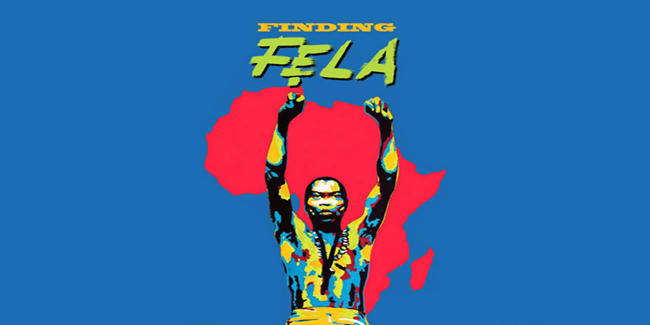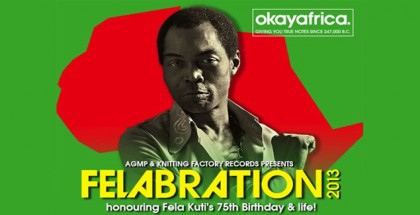New Fela Kuti biopic, 'Finding Fela', brings afrobeat to the silver screen
Review Overview
Rating
7.5“It’s outstanding to me the number of people who still have no idea who Fela is”. These are the words of Bill T. Jones, director of the recent Broadway smash Fela!, in the opening minutes of the new biopic on the enigmatic pioneer of afrobeat music, Fela Kuti. Finding Fela is the latest documentary by Academy Award winner Alex Gibney (Enron: The Smartest Guys in the Room, Casino Jack) and tells the vibrant yet tragic story of the life and times of one of the 20th Century’s most important musicians and guerrillas.
Fela’s name is one that has certainly seen a resurgence in the past few years, thanks in large part to that Broadway and West End musical, which introduced younger generations to his infectiously funky sounds and rejuvenated them for his more seasoned fans.
Yet the amount of people who consider themselves learned music fans and remain unfamiliar with the incredible back catalogue of music by Fela, accompanied by his two most famed and highly esteemed bands, The Africa 70 and The Egypt 80, is still truly surprising.
The unique brand of Africanised jazz-funk that Fela conjured up in ’60s and ‘70s Lagos took in elements of James Brown-era soul, local Nigerian styles – most notably the guitar-heavy West African staple of highlife – and a combination of progressive black thought from American and African sources, which manifested in politically charged lyrics condemning the inequalities and injustices of everyday Nigerian life and its governance.
Now, Finding Fela brings the story to the silver screen and an altogether different audience. The film is a two-sided documentary, one half examining the development of the afrobeat sound and Fela’s increasing politicisation set against the back drop of the Biafran War, the scramble for oil between the Igbo people and the rest of the country, and his excursions to the UK and USA. The other half constitutes a “making of” – of sorts – the Broadway show, which uses footage from behind the scenes to further examine the thought-making process over the theatrical conceptualisation – and hence immortalisation – of the man himself.
There’s a wealth of previously unseen and rediscovered archival footage, as well as exclusive interviews with his family and cohorts, which unveil the depth of Fela’s character which was often more than a little rough round the edges. His less than progressive views on women’s place in the world are certainly at odds with the image of role model-revolutionary he’s so often purported as, while his simultaneous marriage to 27 of his girlfriends poses modern day perplexity.
Though at times you may feel as though you’re actually watching the making of the Broadway show due to the prominence of that footage, the incredible story of this unprecedented rockstar and one of the first counter-cultural heroes in sub-Saharan Africa shines through and forces the realisation that Fela was truly the voice of the Nigerian – and beyond that, African – oppressed, and was out and out a man of the people.
As an exploration of the singular style of afrobeat, as relevant today as it was then and the influence of which remains deep-seated in hip hop, jazz and modern soul, Finding Fela features a monumental amount of music and, as such, is an excellent housing for his immense back catalogue. And whilst it’s not even the first documentary to explore his life (Music Is The Weapon came out in 1982), it’s without doubt a comprehensive contemporary addition to add to the collection on this groundbreaking agitator.
Finding Fela is in UK cinemas 5th September 2014.







